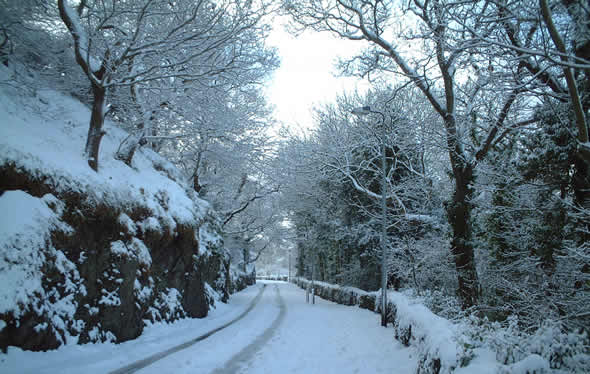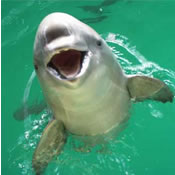
It’s rather cold here at the moment with daytime temperatures not much above freezing, and nighttime dropping to -10°C (14°F) or even -20°C (-4°F) in places. As a result, some of the snow that fell last week has frozen solid and been trampled down on pavements and ungritted back streets making them decidedly icey and slippery.
I also have a cold at the moment, so I thought I’d look into how to say “I have a cold” in a number of languages. In French it’s “Je suis enrhumé” or “I am enrhumed”. Enrhumé comes from rhume (cold), which comes from the Old French reume, from the Latin rheuma, from the Greek rheuma (stream, current, a flowing), from rhein (to flow), from the Proto-Indo-European *sreu- (to flow). The Proto-Indo-European *sreu- is also the root of the Irish sruth (stream, river), the Welsh ffrwd (stream) and the Polish strumyk (brook). [source].
The Czech word for cold rýmu appears to be spring from the same source – mám rýmu is “I have a cold” by the way – as does the English word rheumatism. You can also say jsem nachlazený for “I have a cold” in Czech, which has a similar structure to the French phrase – “I am colded” or something like that.
In Welsh you don’t have a cold but rather a cold is on you: mae annwyd arna i, and the other Celtic languages use the same structure, “Is cold on/at me”: tá slaghdán orm (Irish), tha ‘n cnatan orm (Scottish Gaelic), ta feayraght/mughane aym (Manx).
In German “I have a cold” is Ich bin erkältet (“I am becolded?”), with erkältet coming from kalt (cold).
In Mandarin Chinese you say 我感冒了 (wǒ gǎnmào le) or “I catch cold [change of state particle]”.

